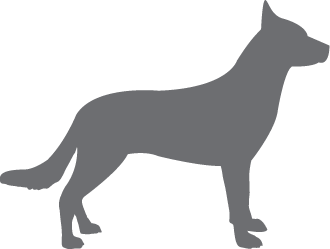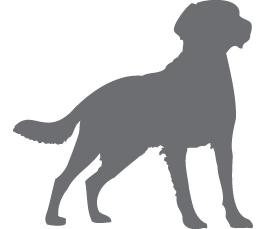How can we take better care of our senior dogs?
As our furry friends age, they require special care. Genetics, nutrition, and environment influence how quickly your dog ages. Even the most active and healthy dogs need different care as seniors.
 |
When is a dog considered old? |
Every dog is unique, but general guidelines can help determine when your dog becomes a senior. Miniature dogs typically have a longer life expectancy than large breeds.
| Size |
Weight |
Mature |
Senior |
| Small |
 |
|
|
|
|
| Medium |
 |
|
|
|
|
| Large |
 |
|
|
|
|
The first signs of ageing
- Activity
Older dogs have less energy, lose interest in toys, and show less enthusiasm for walks. They become less agile and may sleep more.
- Weight
Elderly dogs often lose muscle and gain fat due to metabolic changes, increasing their risk of obesity.
- Skin and coat
Graying around the eyes and muzzle, hair loss, dull coat, and thickening of the nose and pads may occur.
- Behavioral changes
Aging can cause disorientation, altered social behavior, housetraining accidents, sleep disorders, and reduced activity.
- Senses
Sight, hearing, and smell can diminish with age.
Early detection of aging signs allows for timely treatment, enhancing your dog's daily comfort.
 |
What to watch out for? |
As your dog ages, they become more prone to certain diseases, including:
- Kidney diseases Common in aging dogs, affecting 1 in 10. Symptoms: urinary incontinence, dehydration, reduced appetite, lethargy, vomiting, weight loss, oral ulcers, and pale appearance.
- Arthritis Signs include difficulty getting up, reduced enthusiasm for exercise, unexpected aggression, difficulty climbing stairs, and lameness.
- Cancer Symptoms: abdominal swelling, abnormal discharge, non-healing sores, sudden weight loss, lumps under the skin, changes in appetite, and altered bathroom habits.
Vigilant daily care and spotting changes are crucial for early detection of any behavioral or physical problems in your dog.
 |
How to care for your senior dog? |
As your dog ages, their care needs change. Fortunately, there are many ways to ensure they age comfortably. Here are the key steps to keep your senior dog happy and healthy:
- Frequent vet visits
Regular check-ups are crucial, especially as your dog ages. Senior dogs should visit the vet every six months for comprehensive health checks, including dental, eye, ear, skin, weight, heart, lung, vaccination, blood, urine tests, and any other necessary exams as recommended by your vet. Observe changes in behavior, sleep patterns, compulsive licking, anxiety, aggression, or disorientation. Share these observations with your vet.
- Proper nutrition
Adjust your dog’s diet to a senior-specific diet, which should include antioxidant complexes to neutralize free radicals, higher EPA and DHA content to combat inflammation and support skin and coat health, lower phosphorous content for kidney health, added glucosamine and chondroitin for bone and joint support, high-quality protein to preserve muscle mass, and lower calorie and fat content for healthy weight management.
- Low-impact exercise
Opt for gentle activities like short walks or supervised swims. Always provide water and monitor for signs of discomfort.

It’s simply a physiological change that occurs daily, every moment, in every individual. With attentive care and proper management, your senior dog can enjoy their golden years happily and healthily.









